IQAS Internal Evaluation
March 19, 2025 2025-11-24 8:48IQAS Internal Evaluation
IQAS Annual Internal Evaluation
Annual Internal Evaluation 2024
IQAS Internal Evaluation for 2020, 2021, 2022, and 2023
Annual Internal Evaluation 2020
Activity Report – Internal Evaluation of the Internal Quality Assurance System (IQAS) Processes for 2019
- Minutes of Meeting No. 26/09.06.2020 of the Quality Assurance Unit (QAU) of the University of Crete
- Process Report 1 of the Internal Quality Assurance System (IQAS)
- Process Report 2 of the Internal Quality Assurance System (IQAS)
- Process Report 3 of the Internal Quality Assurance System (IQAS)
- Process Report 4 of the Internal Quality Assurance System (IQAS)
- Process Report 5 of the Internal Quality Assurance System (IQAS)
- Process Report 6 of the Internal Quality Assurance System (IQAS)
- Process Report 7 of the Internal Quality Assurance System (IQAS)
IQAS Annual Review
IQAS Certification Proposal
IQAS Certification Proposal - 2024
E1_Certification Proposal 2024
- E0_Table-of-Contents
- E1.1_Strategic_Planning
- E1.2_new_Quality-Policy
- E1.3_new_Quality-Objectives-UOC
- E2.1_4-Year_Resource-Allocation
- E2.2_Internal-Regulations
- E2.3_new_Internal_Resource-Evaluation
- E2.4_Information-Systems
- E3.1_Government-Gazette-Establishment-QAU_2024
- E3.2_new_IQAS-Manual
- E3.3_new_Internal Regulation of QAU
- E4.1_new_IQAS-Email-Minutes
- E4.2_new_IQAS-Review
- E4.3_new_Correspondence_Actions
- E5.1_QAU-Report-Qdata HAHE
- E5.2_Operation-of-QAU-IS
- E5.3_Job-Satisfaction-Questionnaire
- E5.4_QAU-IS-Report
- E6.1_Procedure-for-Evaluating-Operational-Content
- E6.2_List-of-Links
- E7.1_5-Year-Report-of UOC
IQAS Certification Proposal - 2019
A1_Certification Proposal 2019
- A2_Government Gazette IQAS
- A3.1_IQAS Quality Manual
- A3.2_Organizational-Structure-QAU
- A5_Quality-Policy
- A6_Quality-Objectives
- A7_Strategic-Planning
- A9.9_Data-Indicators-Part-A
- A9.9_Data-Indicators-Part-B
- A4.1_Internal research funding regulation
- A4.2_Guide-for- management of the Foundation’s research and related activities
- A4.3_Project-Management-Procedures-Manual_ver3
- A4.4_Internal-Regulation-of-Library-Operation
- A4.5_Internal-Regulation-for-Student-Residences
- A4.6_Points-System-for-Student Catering-and-Housing
- A4.7_Guide-for-Contract-Signing-SARF
- A9.1_Process-Timeline
- A9.2_European-Charter
- A9.3_Improvement-of-the-Educational-Process-–-ToT-Action
- A9.4_Criteria-for-Erasmus-Training-Grading
- A9.8_Implementation-Framework-Process-6
- A9.9_Health-and-Safety-Committees


